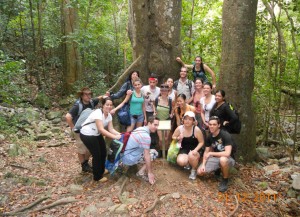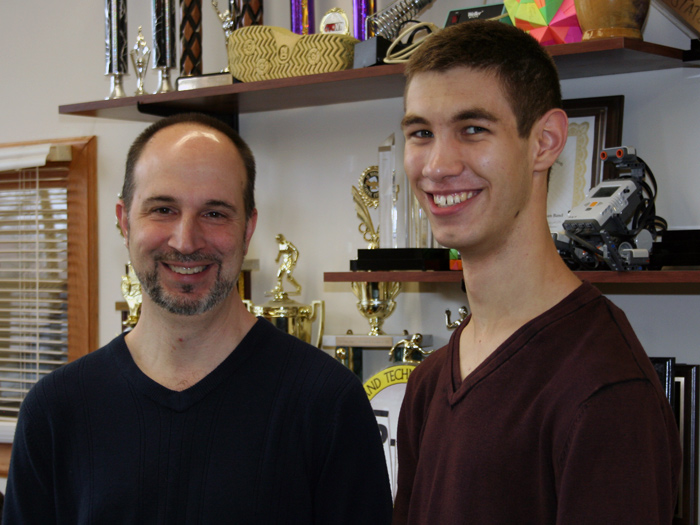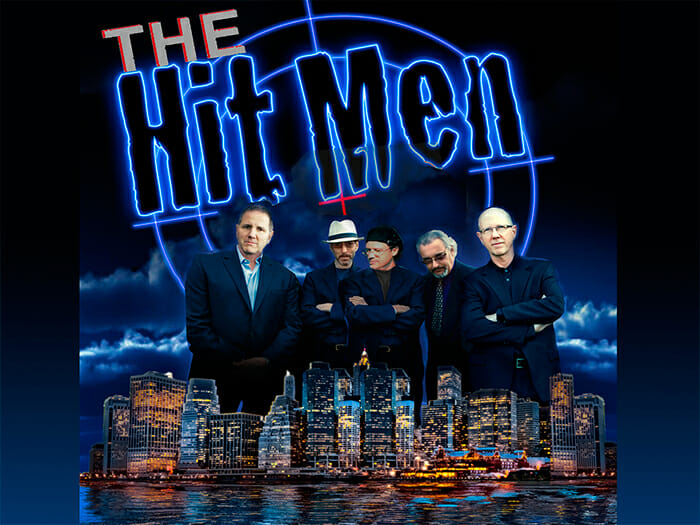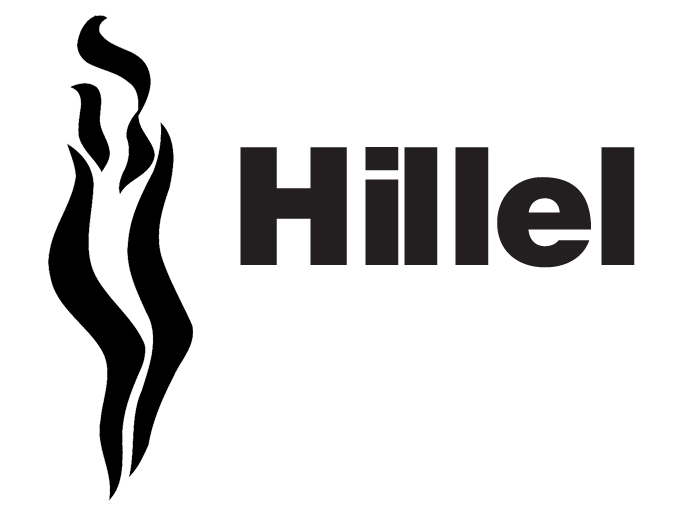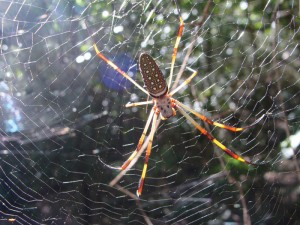
The Giant orb-weaver spider is only one of the exotic encounters that the students experienced in Biology 504, Introduction to Tropical Ecology, while studying in the Virgin Islands last January. Photo by Lisa Manne.
Close your eyes and imagine looking up at the stars. You might see some clouds, a couple of stars perhaps, if you know what to look for you can make out some constellations, but mostly you see the reflected glow from the lights of New York City.
Now imagine looking up and seeing a star in almost every piece of black space. It would be a truly magnificent sight to behold. Don’t open your eyes yet. Additionally, imagine sitting out on a dock, in what is practically your own private pier, surrounded by pristine water, the moonlight, and the sound of waves crashing around you. Now include 16 fantastic people who are accompanying you in this unbelievable setting, some of them dancing, others just relaxing.
View the CSI Today Photo Gallery.
This doesn’t sound like a typical experience for CSI students, but 16 of us, well, 14 if you don’t include faculty, recently had this experience for 11 nights on the island of St. John in the Virgin Islands. Not only were we having a great time, learning about the tropics, but we were getting Biology credits for being there. Particularly, the course was Biology 504, Introduction to Tropical Ecology, taught by Dr. Lisa Manne.
The success of the trip was predicated on the fact we had eager students and faculty (who did a fantastic job of organizing everything) who were all willing to help each other out and roll with the punches no matter what kind of situations arose throughout the duration of the trip. These situations ranged from not getting enough food during mealtimes (a word from the Professor to the kitchen staff solved this crucial issue) to being tossed around like a baseball trying to snorkel around a reef.
It certainly didn’t hurt that our free time was spent relaxing on what seemed like our own private immaculate beach with crystal-clear water a mere ten-minute walk from VIERS (Virgin Island Environmental Research Station), our home away from home.
VIERS is a field station located in the middle of the National Park on St John, literally, only dirt roads will get you there. The camp is partly powered by solar panels, and they use water via a rain-collecting system around all the buildings in the camp. These things make the carbon footprint of the camp very small. The one downside of the trip was the three-minute showers, a consequence of living off the grid, where the only fresh water is supplied by rain.
It was a bonus that we were snorkeling every day in the pristine waters of the Virgin Island National Park, and seeing some astounding marine life. On several different occasions we saw sharks, stingrays, barracuda, and even a sea turtle.
When we weren’t snorkeling off a boat or in a bay or even in a mangrove, we were doing some amazing hiking, with some amazing views.
Part of our work on the course entailed participating in some intense and cool research on resource use by hummingbirds, travel distances of marked hermit crabs, perch heights and behaviors of lizards, feeding times of butterflies, and diversity of various marine life. In addition to the research we also had some guest lecturers come and teach us about the biodiversity of the Virgin Islands, and specifically St John.
It is quite an experience sitting on the Caribbean sand writing our course journal about our experiences while basking in the tropical sun. It seemed like by the end of the trip we had been living off the grid for long enough to be in serious touch with nature. I think a few of us were telling time by the sun, a skill that was subsequently lost, probably the moment we landed in Newark.
This is a research trip I would recommend to everyone interested in tropical cultures and ecosystems. Not only will you learn a lot, but you will have a great time doing it.
On second thought, I rescind my recommendation. I don’t want the next trip to fill up before I have a chance to register.

![[gallery] A Student’s Journal from the U.S. Virgin Islands](https://csitoday.com/wp-content/uploads/2011/10/orbweaver_spider_100211.jpg)
